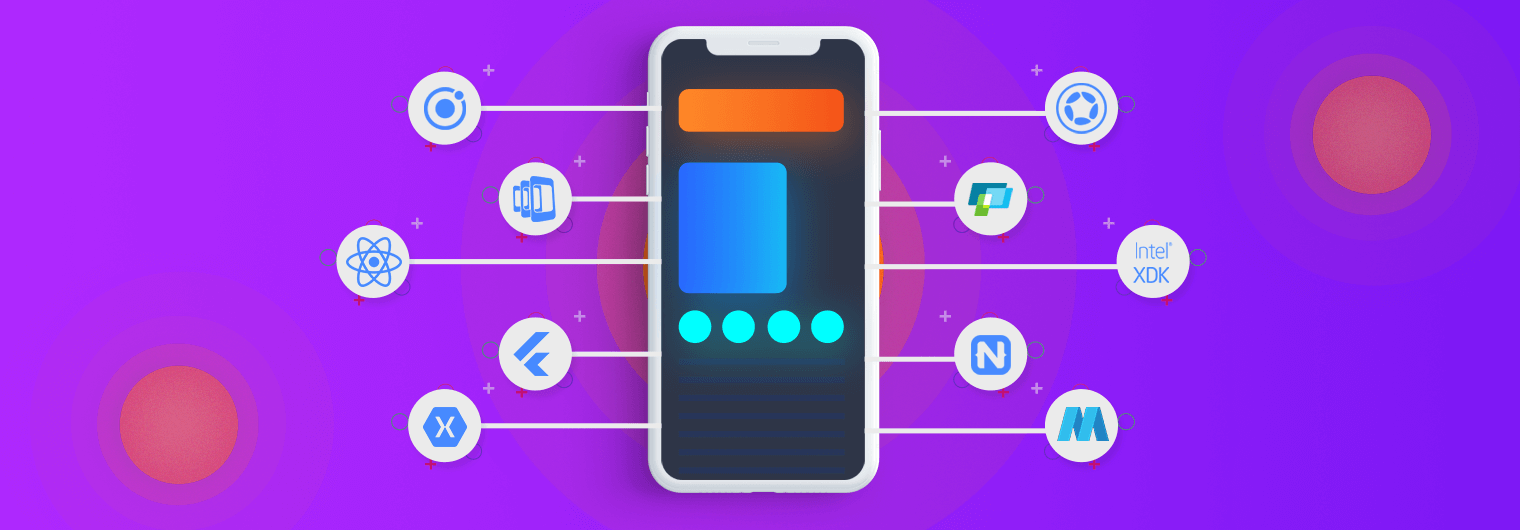
With over 2.1 billion smartphone users across the world today, it is easy to see why the trend of building mobile apps is on the uptrend in recent years! People have realized that apps are a great way to connect with business customers, sell products, offer customer support and create a buzz around their brand. With a mobile app, you are always just a click away from connecting with customers.
Google Android is the undisputed leader in the app market, with over half the world users on the Android platform. Android Studio is the Integrated Development Environment (IDE) that has the necessary packages, or Android SDKs (Software Development Kits), to help you create apps. Different SDKs like Android Native Development Kit can be used in combination with Android Studio and you can use languages like Java, C#, C++, C or even BASIC, to create your app.
As a developer, you should be well versed with the different Android app development frameworks that are available. Here is the lowdown on the popular frameworks that are trending in 2019!
Kotlin
Recently, Kotlin was introduced as the second official Android language and it is preferred by many programmers due to its easier learning curve and simpler coding. Kotlin is interoperable with Java and codes in Kotlin can also be run as Java code. Kotlin is considered to be the modern answer to older Java, and has really caught the attention of the Android Community. Both Java and Kotlin codes can comfortably co-exist within the same project.
Xamarin
Xamarin Studio is the Integrated Development Environment (IDE) used to create Android, iOS, and Mac applications, and learning Xamarin will help you embark on a career in mobile development. Already in use by over 1.5 million users globally, Xamarin is considered to be one of the best Android app development frameworks in the market. Using Xamarin, you can code an app for multiple platforms, which reduces the application developing and testing time and helps to decrease the time-to-market for apps.
React Native
React Native is a JavaScript framework that enables writing native mobile apps for iOS and Android. An open source version of React, Facebook’s JavaScript library for building user interfaces, React Native has been used by many Fortune 500 companies like Instagram, Tesla and Walmart to create mobile apps. Very popular due to the ease of coding and robust developer tools available, React Native has the potential to expand to future platforms as well.
Ionic
Licensed under the MIT License, Ionic helps developers to create amazing cross platform mobile, web and desktop apps with a shared code base. A free and open source app development framework, Ionic is a framework built on top of Cordova that has a good availability of ‘plugins’. By understanding Ionic, developers need not learn native coding to build iOS, Windows or Android apps. Ionic is considered my many developers to be one of the best open-source SDKs for developing hybrid mobile apps with ease.
Cordova
An open-source mobile development framework, Apache Cordova allows the use of standard web technologies such as HTML5, CSS3, and JavaScript for cross-platform app development. This popular mobile app development framework allows the creation of multi-platform mobile apps that can also access native device APIs using a single code base. Apache Cordova is an excellent platform for developing desktop apps as well, without the need to re-implement the app with each platform’s language and tool set.
PhoneGap
PhoneGap, another platform which allows the easy development of cross platform apps is an open source framework that works with advanced programming languages like HTML5, CSS and JavaScript. It uses minimal lines of code and has an easy learning curve. Similar to Cordova but with additional tools and plugins, PhoneGap comes with an intuitive desktop app that can be used for building cross platform apps with a single base code.
Titanium
Titanium is an open source mobile app development framework that helps to create beautiful and transformative mobile experiences. Developers can create rich, clean and visually appealing apps that are native in not just look and feel but functioning as well. Titanium includes API Builder with Hyperloop, which come free for users. This framework includes an open source SDK that offers over 5,000 device and mobile operating system APIs. Developers can use Studio, Titanium’s powerful Eclipse-based IDE to simplify development. Alloy is an MVC framework that helps to quickly build Titanium apps.
TheAppBuilder
TheAppBuilder is an online flexible enterprise mobile application development platform that helps clients with no design knowledge to build great looking Apps. This framework will help you decide where each element of the app should go for better design appeal. Apps built using this framework are highly interactive and can get synced easily with all the devices on which a user is logged on. In-built analytics help app creators to make decisions on retaining certain features while trashing others that slow down the app.
Conclusion
Explore all these free and open source app frameworks well, and learn more from user communities before you decide which are the ones you want to take up and learn in detail. The future of mobile app development is bright and this is an exciting space to be in…beyond a doubt, we will see huge growth in the mobile app market!